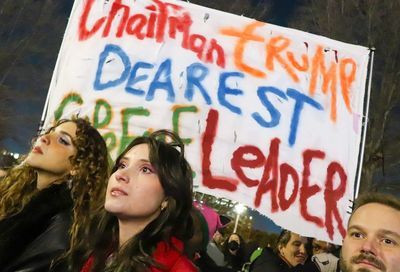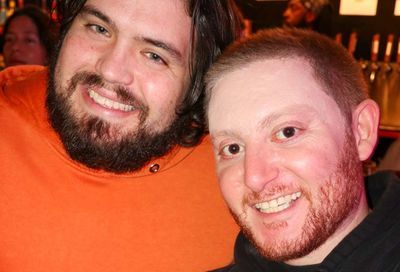Petitions Challenging DOMA Piling Up
83-year-old Widow's Case Becomes Fourth Sent to Supreme Court
Last week the Supreme Court received its fourth petition in less than a month asking the high court to review the constitutionality of the Defense of Marriage Act.
On July 16, lawyers for Edith ”Edie” Windsor filed the petition with the hope that the Supreme Court will consider the 83-year-old window’s case challenging Section 3 of DOMA on the grounds that it violates the 14th Amendment’s Equal Protection Clause by blocking same-sex couples from enjoying federal benefits.
Although arguments are scheduled to begin in the Second Circuit Court of Appeals in September, Windsor’s lawyers are asking the Supreme Court to expedite the case because of its national importance. The American Civil Liberties Union, the New York Civil Liberties Union and the Stanford Law School Supreme Court Litigation Clinic joined in filing the petition.
Windsor has been challenging DOMA since 2009, following the death of her wife, Thea Spyer. Windsor is suing to recoup about $363,000, federal estate tax she was forced to pay on her inheritance from Spyer. The federal government does not tax inheritances that pass from one spouse to the other, but because of DOMA the federal government has refused to recognize Windsor and Spyer’s marriage. According to the ACLU, payment of the federal estate tax is one of the most damaging impacts of DOMA.
Living most of their lives in New York City’s Greenwich Village, Windsor and Spyer married in Canada in May 2007, 50 years into their relationship. They were first engaged in 1967. Nevertheless, Windsor’s lawyers say the government still views them as legal strangers.
The petition comes on the heels of a win for Windsor in New York District Court in June, where a judge ruled that Section 3 of DOMA unconstitutionally discriminates against same-sex couples.
“With Edie’s case and the two others, the high court has before it striking illustrations of the many different harms that DOMA inflicts on many thousands of married same-sex couples all across the country,” said James Esseks, director of the ACLU Lesbian Gay Bisexual and Transgender Project, in a statement. “Edie and Thea got married after making a life-long commitment to each other, and it’s just wrong for the government to pretend that they were legal strangers.”
Windsor told The Huffington Post that her case is less about the money lost than the principle of the matter.
“I was anguished about the money, but it was more about the indignation,” Windsor said. “The government was not recognizing us, and we deserved recognition.”
Windsor’s petition comes after three other cases were petitioned in late June and early July by the Justice Department and the House Bipartisan Legal Advisory Group (BLAG), controlled by House Republican leadership, regarding DOMA’s constitutionality, albeit for different reasons. The Obama administration instructed the Justice Department to stop enforcing DOMA in February 2011 declaring it unconstitutional. As a result, BLAG has sought to defend DOMA with the hope that it will be found constitutional by the courts.
Which case the Supreme Court ultimately hears arguments on remains to be seen, but it is widely anticipated that they will issue a ruling on DOMA’s constitutionality by this time next year.
Windsor’s lawyers argue that her case ”presents a question of exceptional national importance” and is the most pertinent of the four, particularly because of Windsor’s age and health.
Windsor’s lawyer, Roberta Kaplan, points out that Windsor suffers from a heart condition. Indeed, after Spyer’s death, Windsor suffered a heart attack. Kaplan, who is a partner at Paul, Weiss, Rifkind, Wharton & Garrison, also cites Windsor’s advanced age as among the reasons the Supreme Court should take up her case.
Says Kaplan, “The constitutional injury inflicted on Edie should be remedied within her lifetime.”
Support Metro Weekly’s Journalism
These are challenging times for news organizations. And yet it’s crucial we stay active and provide vital resources and information to both our local readers and the world. So won’t you please take a moment and consider supporting Metro Weekly with a membership? For as little as $5 a month, you can help ensure Metro Weekly magazine and MetroWeekly.com remain free, viable resources as we provide the best, most diverse, culturally-resonant LGBTQ coverage in both the D.C. region and around the world. Memberships come with exclusive perks and discounts, your own personal digital delivery of each week’s magazine (and an archive), access to our Member's Lounge when it launches this fall, and exclusive members-only items like Metro Weekly Membership Mugs and Tote Bags! Check out all our membership levels here and please join us today!



















